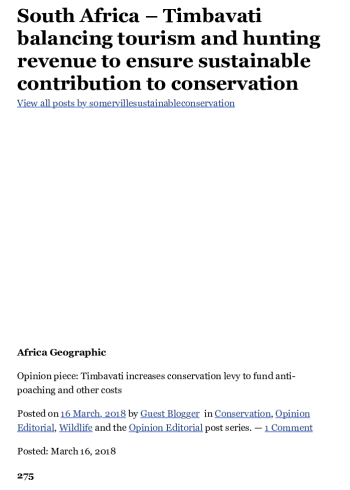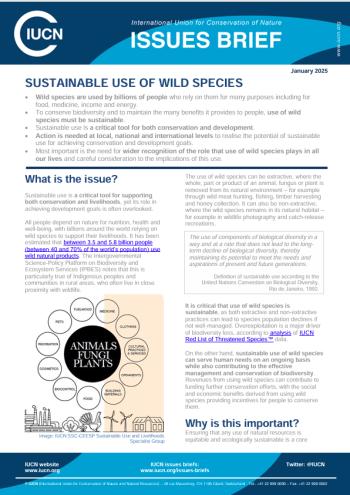
South Africa – Timbavati Balancing Tourism and Hunting Revenue to Ensure Sustainable Contribution to Conservation
For the past few years, the Timbavati Private Nature Reserve – home to both of our Tanda Tula camps – has been facing a dilemma. In the Greater Kruger, poaching has shown no signs of abating, wildlife crime syndicates are becoming increasingly ruthless, and reserve security costs have continued to soar – 850% in the last five years, to be exact. We have become increasingly aware that this situation is not sustainable, and for some years now, we have been exploring leverage points. Where could the much-needed revenue be generated? Since the idea behind sustainable utilisation is for it to be just that – sustainable – increasing hunting quotas to boost income is simply not an option. Using the same logic, increasing revenue by adding too many commercial beds in the Timbavati would also be unsustainable.
Scott, D., 2018. Opinion: Timbavati increases conservation levy to fund anti-poaching and other costs. Africa Geographic.
-
Don Scott
We support the free flow of information. Please share:
Form coming soon
Related Content
-

-

Review of African Social and Economic Development Volume 1
ByIbrahim Bàbátúndé Anobaarrow_forward2024 -

Economic Analysis: Climate Change and Wildlife Utilization on Private Land
ByJackson OtienoEdwin Muchapondwaarrow_forward2015
Get updates by email
Through impactful research, stakeholder engagement, and professional development, AWEI is supporting the wildlife economy across Africa. Please subscribe for occasional updates on our work and forthcoming events.
Sign up for a quarterly dose of AWEI insights
In a complex and changing world, AWEI generates strategic ideas, conducts independent analysis on wildlife economies, and collaborates with global scholar-practitioners to provide training and expertise for biodiversity conservation, climate resilience, and inclusive economic opportunities in Africa.
